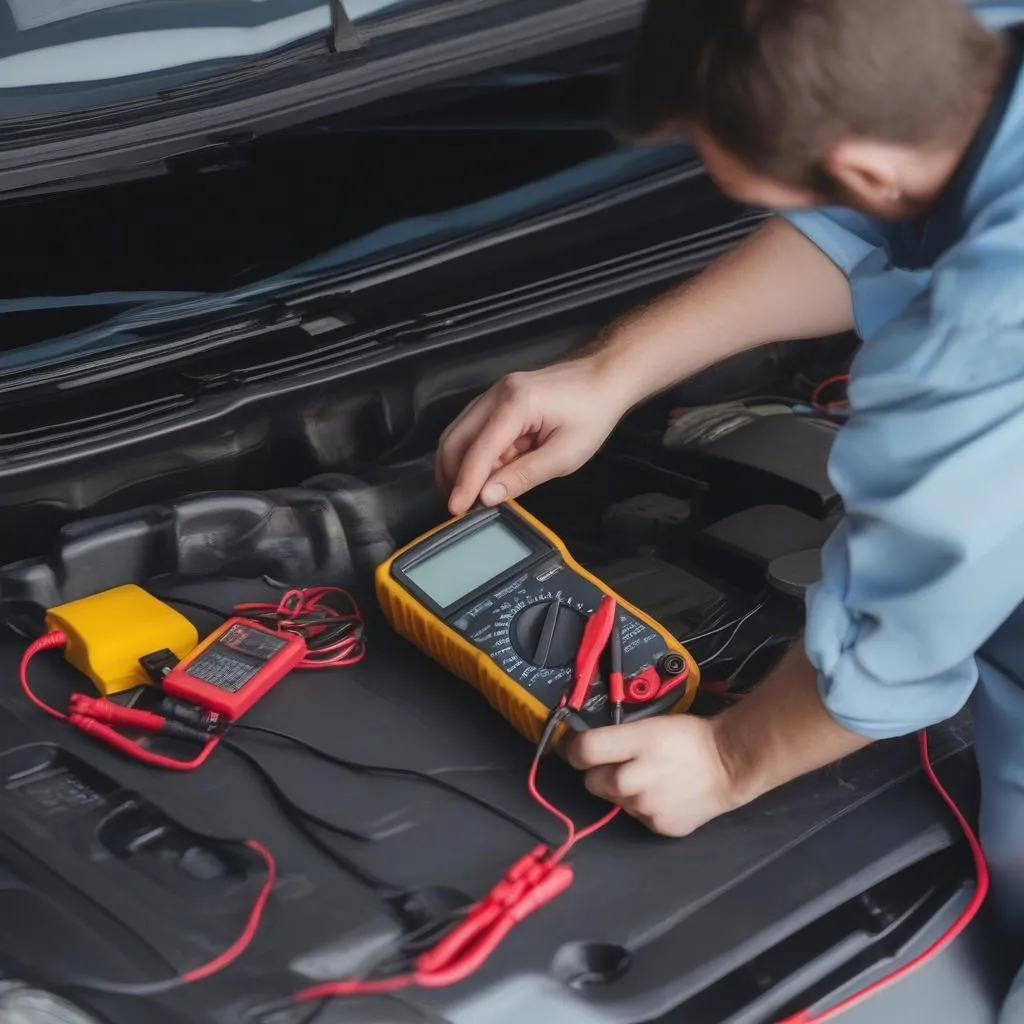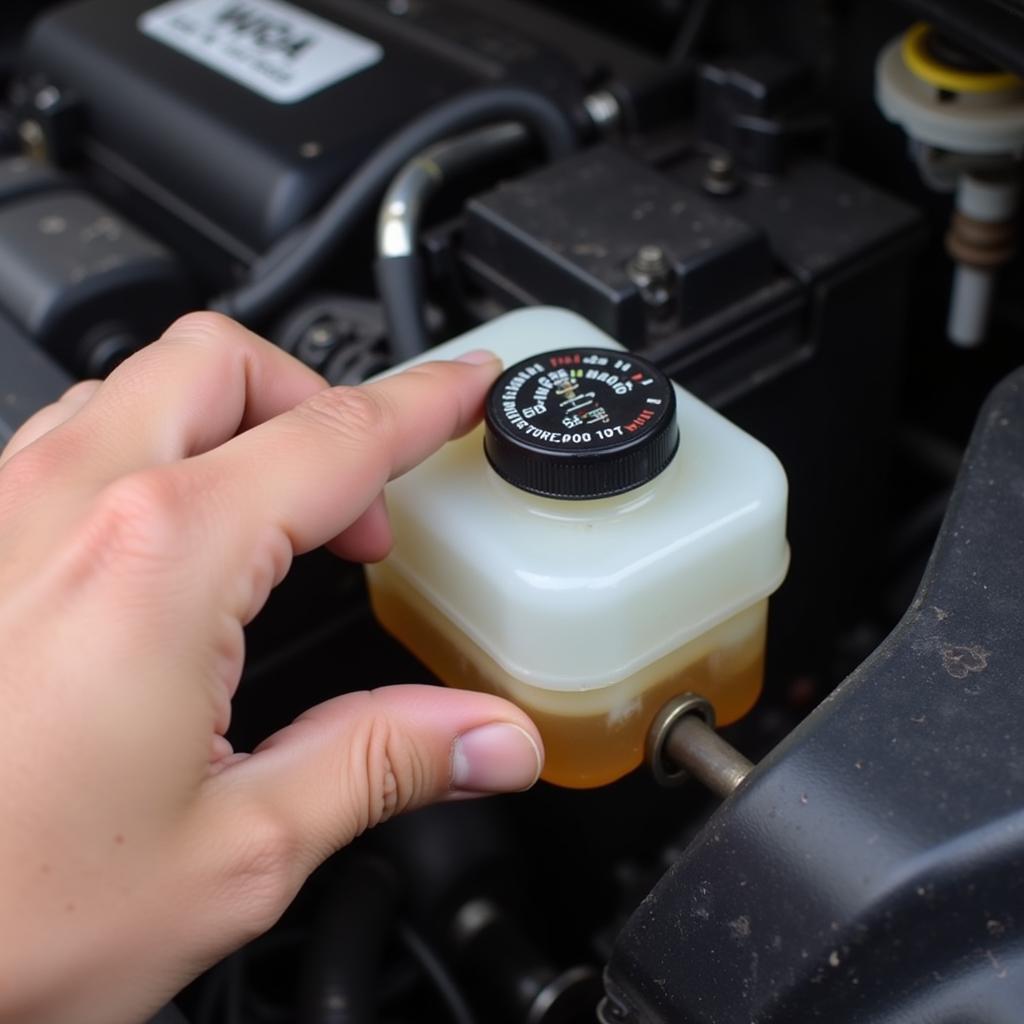You’re driving home, and your car suddenly starts acting up. The engine sputters, the dashboard lights up like a Christmas tree, and you’re pretty sure you hear strange noises coming from under the hood. Your mind races through possibilities – is it a mechanical failure? A faulty sensor? Then it hits you: could it be the Tile anti-theft mode you recently enabled on your key fob?
Understanding Tile Anti-Theft Mode and Its Impact on Vehicles
First things first: Tile anti-theft mode is designed for finding lost belongings, not cars. It prevents your Tile tracker from being remotely disabled by someone who might steal your bag, wallet, or keys (with the Tile attached). While a Tile tracker can be a handy tool for remembering where you parked, it doesn’t have the capability to impact your car’s functionality or trigger an anti-theft system.
So, if your car is experiencing issues, the culprit lies elsewhere.
Common Car Problems and How to Identify Them
Modern vehicles are complex machines, and a myriad of issues can lead to unexpected behavior. Here are a few common culprits:
1. Battery Problems
Symptoms: Difficulty starting, dimming lights, clicking sounds when turning the ignition.
How to Identify: Inspect your battery terminals for corrosion, test the battery voltage with a multimeter.
2. Alternator Issues
Symptoms: Dimming or flickering lights, warning lights on the dashboard, unusual noises from the engine.
How to Identify: Have your alternator tested at an auto parts store or mechanic.
3. Sensor Malfunctions
Symptoms: Poor engine performance, reduced fuel efficiency, warning lights on the dashboard.
How to Identify: Use an OBD-II scanner to read error codes stored in your car’s computer.
 car battery check
car battery check
Troubleshooting Your Car Problems: Essential Tools
To get to the root of your car trouble, you’ll need the right tools:
- OBD-II Scanner: This handy device plugs into your car’s diagnostic port and reads error codes, providing valuable insights into the problem.
- Multimeter: For testing battery voltage and continuity in electrical components.
- Basic Hand Tools: Screwdrivers, wrenches, pliers for simple inspections and repairs.
Seeking Expert Help for Accurate Diagnosis
While some car problems can be solved with DIY fixes, others require the expertise of a qualified mechanic.
Expert Insight: “Modern vehicles are heavily reliant on electronics and software. Attempting to diagnose and repair complex issues without proper knowledge and equipment can lead to further damage,” warns automotive electronics specialist, Dr. Emily Carter, author of “Automotive Electrical Systems Demystified.”
If you’re unsure about diagnosing or repairing your car problems, don’t hesitate to reach out to Cardiagtech for professional assistance. We offer remote diagnostics, programming, and software installation services to help you get back on the road quickly and safely.
 mechanic diagnosing car problem
mechanic diagnosing car problem
FAQs About Car Trouble and Diagnostic Tools
Q: Can a bad battery cause my car alarm to go off randomly?
A: Yes, a failing battery can sometimes cause voltage fluctuations that trigger your car alarm.
Q: What does a “Check Engine” light mean?
A: It indicates a problem detected by your car’s engine control unit (ECU). It could range from a loose gas cap to a more serious engine issue.
Q: Can I use any OBD-II scanner to diagnose my car?
A: While generic scanners can read basic codes, some car manufacturers use proprietary protocols. For advanced diagnostics and programming, a specialized scanner may be required.
Need Further Assistance?
Don’t let car troubles put a wrench in your day! Contact CARDIAGTECH for expert diagnostics and repair solutions. We’re here to help you navigate the complexities of modern automotive technology.

